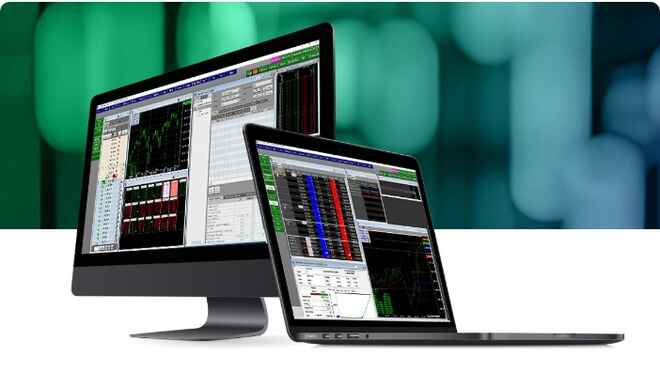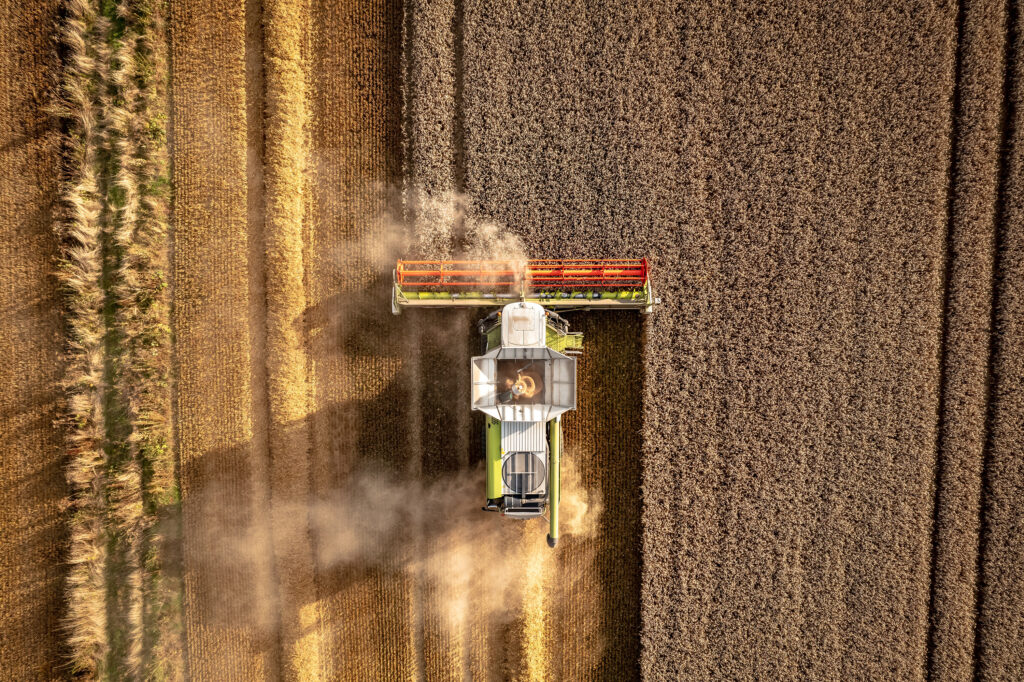What are Grain Futures?
Grain futures are standardized financial contracts that allow buyers and sellers to agree on the price and delivery of a specific quantity of grain at a predetermined future date. These contracts are traded on established futures exchanges and serve as a tool for producers and consumers to hedge against the risk of fluctuating grain prices. They also provide a platform for traders to speculate on price movements, aiming to profit from market volatility.
For many, grains such as corn, wheat, and soybeans are more than just dietary staples. Beyond their role in our meals, these grains play a pivotal role in the global economy. Their prices can be influenced by a myriad of factors, from weather patterns affecting harvests to geopolitical events impacting supply chains. As such, the grain futures market becomes a crucial arena for farmers seeking to secure prices for their crops and for traders looking to capitalize on price shifts.
Tracing the Evolution: The Rich History of Grain Futures Trading
Grain futures trading has deep historical roots, tracing back to ancient civilizations. The idea of forward contracts, a precursor to futures contracts, has been around for millennia. Ancient Egyptians and Babylonians practiced a form of grain trading, where farmers would agree to deliver a certain amount of grain at a future date for a set price. This allowed both parties to hedge against potential price fluctuations and ensured a stable supply of grain.
The mid-1800s saw the rise of grain futures trading in the United States, particularly in Chicago. With the city’s strategic location and the expansion of the railroad system, Chicago became a hub for grain storage and distribution. However, this also led to volatile grain prices due to supply and demand imbalances. To mitigate this, the Chicago Board of Trade (CBOT) was established in 1848. By 1865, the CBOT introduced standardized grain futures contracts, allowing traders to buy and sell contracts for the future delivery of grain. This system provided farmers with price stability and gave speculators an opportunity to profit from price movements.
The success of grain futures trading in Chicago set the stage for the establishment of other commodity exchanges across the U.S. and globally. However, the rapid growth of the futures market also led to concerns about manipulation and fraud. This prompted the U.S. government to introduce the Commodity Exchange Act in 1936, providing a regulatory framework for futures trading. Over the years, technological advancements, such as electronic trading, have further transformed the landscape of grain futures trading, making it more accessible and efficient. Today, grain futures trading remains a vital tool for agricultural producers, consumers, and traders worldwide, reflecting the changing dynamics of the global economy and the agricultural industry.
Grain Futures Facts
Grain futures trading, with its intricate web of global influences and market dynamics, stands as a testament to the interconnectedness of modern economies. While many are familiar with the basics of trading, the world of grain futures holds a plethora of lesser-known facts that shed light on its significance, challenges, and opportunities. Let’s unearth some of these fascinating insights into the realm of grain futures trading.
- Global Reach: Grain futures options are traded on major exchanges worldwide, with the Chicago Board of Trade (CBOT) being one of the most prominent. Other significant exchanges include the Dalian Commodity Exchange in China and the Bursa Malaysia in Malaysia.
- Diverse Portfolio: While corn, wheat, and soybeans are the most commonly traded grains, futures markets also exist for oats, rice, and other grains, allowing for a diversified trading portfolio.
- Economic Indicators: The prices of grain futures can serve as indicators of global economic health. High demand and rising prices can signal economic growth, while a drop in demand might indicate economic downturns or challenges.
- Weather Dependency: Grain futures prices are heavily influenced by weather patterns. Droughts, floods, or unseasonal weather can impact crop yields, leading to price fluctuations in the futures market.
- Technological Impact: Modern technology, including satellite imagery and advanced forecasting models, plays a crucial role in predicting crop yields and potential supply, influencing grain futures prices.
- Risk Management Tool: For farmers and producers, grain futures act as a hedge against volatile prices. By locking in prices ahead of time, they can mitigate potential losses due to market fluctuations.
- Leverage Opportunities: Grain futures trading allows for significant leverage, meaning traders can control large contract sizes with a relatively small amount of capital. However, this also means increased risk.
- Regulatory Oversight: Grain futures markets are subject to stringent regulations to ensure fair trading practices. In the U.S., the Commodity Futures Trading Commission (CFTC) oversees the futures markets.
- Physical vs. Cash Settlement: While some grain futures contracts are settled by physical delivery of the grain, many are settled in cash, meaning no actual grain changes hands.
- Global Influencers: Apart from weather, global events such as geopolitical tensions, trade wars, and policy changes can have significant impacts on grain futures prices.
The Specifics of Grain Futures Trading
Grain futures trading isn’t just about buying and selling contracts; it’s a nuanced process influenced by a myriad of factors and governed by specific rules and practices. Here’s a deeper dive into its specifics:
- Contract Specifications: Each grain futures contract has its own set of specifications, detailing the quantity, quality, and delivery parameters of the grain. For instance, a standard corn futures contract on the CBOT represents 5,000 bushels of No. 2 Yellow Corn.
- Delivery Points: Contracts specify delivery points where the physical grain can be delivered upon contract expiration. These are typically major storage facilities or transportation hubs.
- Price Limits: To prevent extreme volatility, many grain futures have daily price limits. If a price moves up or down by the maximum allowed amount, a trading halt may be triggered until equilibrium is restored.
- Trading Hours: While historically trading was confined to specific hours in physical trading pits, the advent of electronic trading platforms has expanded trading hours, allowing for nearly 24-hour trading in some markets.
- Margin Requirements: Traders must maintain a specified amount of money, known as the margin, in their accounts to cover potential losses. These margins can change based on market volatility.
- Rolling Over Contracts: Since futures contracts have expiration dates, traders who wish to maintain their positions can “roll over” to a contract with a later expiration date, effectively extending their position.
- Tax Implications: Profits and losses from grain futures trading are subject to specific tax treatments, often different from those of stock trading. It’s essential for traders to be aware of these to ensure compliance.
- Basis Trading: This refers to the difference between the cash price of the grain at a specific location and the futures contract price. Traders can exploit this difference, known as the “basis,” to their advantage.
- Hedging vs. Speculating: While many participants use grain futures as a hedging tool to protect against adverse price movements, others, known as speculators, trade contracts to profit from price fluctuations without intending to take delivery.
- Global Interplay: The grain futures market is influenced not just by local factors but by global events. Crop reports from major producers, global demand-supply dynamics, and geopolitical events can all sway prices.
RJO Futures: Your Premier Partner in Grain Futures Trading
In the intricate world of grain futures trading, having a reliable partner can make all the difference. At RJO Futures, we pride ourselves on being more than just a trading platform. We are a legacy of trust, expertise, and commitment. Our state-of-the-art trading platform is designed to provide traders with a seamless and intuitive experience, ensuring you’re always a step ahead in the market. But technology is just the beginning. Our timely grain market data and comprehensive research reports are curated by industry experts, ensuring you’re equipped with the latest insights to make informed decisions.
Beyond tools and data, what truly sets us apart is our unwavering dedication to our clients. Our personalized service ensures that every trader, whether novice or seasoned, receives tailored guidance and support. Our expert advisory staff, with their vast experience and deep market knowledge, are always on hand to assist with your trading queries, ensuring you navigate the grain futures landscape with confidence. When you choose RJO Futures, you’re not just selecting a service; you’re partnering with a legacy of excellence. Reach out to us today and embark on a grain futures trading journey that promises success, support, and unmatched expertise.



